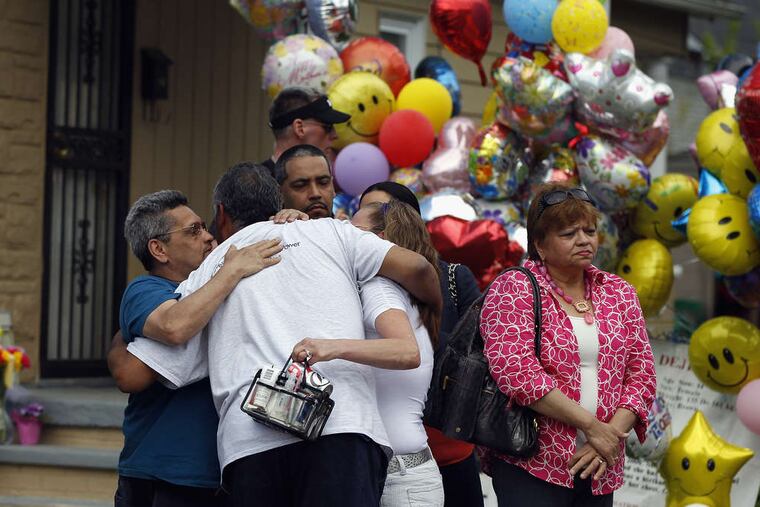Nightmares don't end quickly
Victims of awful events need time to heal, despite our wishful thinking.

IF THERE'S one word that's overused after particularly horrendous events, it's "resiliency."
Without fail, after every awful, life-altering event - 9/11, the Newtown, Conn., school shootings, the Boston Marathon bombings - we waste no time throwing the feel-good word around.
We need a happy ending - fast.
So we tell ourselves that everything will be OK, that this too shall pass, because this city - Boston Strong! - this community - We are Newtown! - this child, is resilient.
No one is as resilient as a child, we tell ourselves.
I was still thinking about the 11-year-old I wrote about Tuesday, who watched his mother executed on a Philadelphia street, when the missing Cleveland women were found Monday night.
How does a kid come back from that, I wondered? How do any of the children in Philadelphia or Cleveland or Anywhere, USA, really rebound from such steady diets of trauma?
I know, I know. Kids are resilient. But I think that's wishful thinking, because who wants to think that trauma can irreparably break someone? Or that resiliency isn't the limitless magical salve so many of us would like to think it is?
I think trauma of the sort we've been reading about is irreparable. The best a victim can do is adjust and cope the best that he or she can.
When the three Cleveland women were rescued Monday night after a nightmarish decade of captivity, it didn't take long for people to celebrate.
"The nightmare is over," an FBI agent declared.
"It's a miracle," everyone agreed.
And it was a miracle. Except I think the real miracle about these courageous women, or the brave 11-year-old or any number of people who survive unimaginable trauma, is that against all odds, they don't just curl up and give up.
They survive, and sometimes thrive. They adjust.
Just look at Elizabeth Smart, of Utah, who was kidnapped at knifepoint as a teenager and held captive for nine months by a street preacher. After her own miraculous escape, she started a foundation to protect and educate children about violent and sexual crimes.
Or consider Jaycee Dugard, who was kidnapped and held captive in South Lake Tahoe for 18 years.
"The human spirit is incredibly resilient," she said in a statement about the Cleveland women.
But both she and Smart also emphasized something else - recovery wouldn't be easy or fast. "They need time," Smart told reporters.
And time is the reality of resiliency, said Donna Fiedler, a professor of social work at La Salle University.
Fiedler, who studies and treats emotional trauma, said there's an explanation for our clinging to the notion of resiliency after traumatic events.
"We don't want to feel the pain ourselves," she said. It's easier to assign a unrealistic power to resiliency because we need to think that as bad as something is, it's not insurmountable: It's OK. The little boy survived. The women are free. It's a miracle. We can move on.
In reality, true miracles, like resiliency, take time, and work. It's a process, Fiedler said, of family support and counseling and even setbacks.
And all of that happens long after the reporters have gone home and the story has faded from the headlines.
Yesterday, the sister of one of the Cleveland victims was surrounded by a scrum of media while she delivered a statement.
"I want to thank the public and the media for their support and their encouragement over the years," said Beth Serrano, Amanda Berry's sister. "At this time, our family would request privacy so my sister and niece and I can have time to recover."
Time to work toward her happy ending.